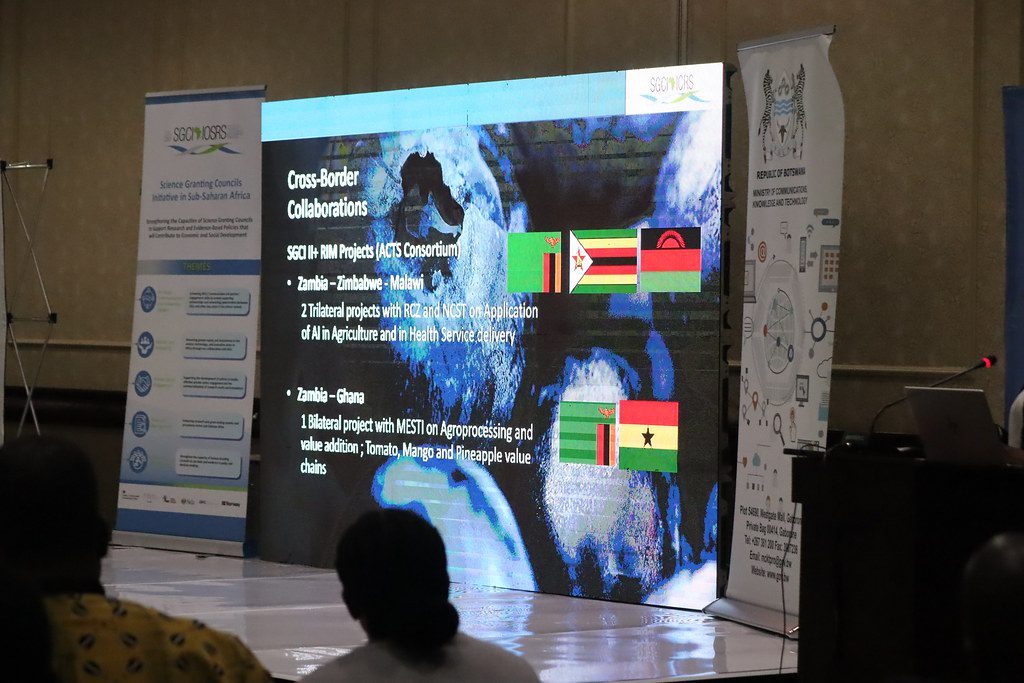SGCI News
In a demonstration of how research can translate into tangible economic benefits, Uganda and Malawi are yielding impressive results in their lab-to-market drive through a project helping Science Granting Councils…
In a demonstration of how research can translate into tangible economic benefits, Uganda and Malawi are yielding impressive results in their lab-to-market drive through a project helping Science Granting Councils turn scientific research into marketable products.
The project led by Maurice Bolo, the executive director of the Scinnovent Centre in Nairobi, Kenya, under the Science Granting Councils Initiative (SGCI), is addressing a critical gap which is the difficulty many SGCs face in managing and capitalizing on the intellectual property (IP) generated from funded research.
A lot of times, research comes up with technologies or processes that have IP value, but the councils do not have a system to identify these, Bolo explained.
The project’s core mission is to equip SGCs with the tools and knowledge to conduct IP audits, develop strategic IP policies, and create frameworks for successful commercialization.
The impact is vividly illustrated in Uganda and Malawi.
In Uganda, a dynamic partnership between a university and local beekeepers has resulted in the development and market launch of innovative propolis products.
This collaboration exemplifies how academic research, when connected with the local industry, can create valuable products and boost local economies.
Similarly, in Malawi, a biogas plant project involving the municipal council and private sector actors has seen remarkable success.
The private sector’s adoption of the technology has driven sustainable energy solutions, showcasing the potential for research to address pressing environmental challenges.
These examples from Uganda and Malawi are a testament to the potential of public-private partnerships. We will do more this year, Bolo emphasized.
They show that when research is properly managed and commercialized, it can lead to real-world impact and economic growth.
The project is not just about individual success stories, it is about building sustainable systems.
By strengthening the institutional capacity of SGCs to manage IP, the initiative is fostering a culture of innovation across the continent.
“Our goal is to ensure that funded research is not left on a shelf,” Bolo stated.
“The success in Uganda and Malawi demonstrates how we can translate research into tangible benefits for African communities.”
The initiative is paving the way for a future where African research drives economic development, creating new markets and income streams across the continent.
Find out more here
Let’s continue the conversation on our social media.
Follow us https://x.com/SGCIAfrica
Related News
How Zambia’s science council is funding research that matters
When Zambia’s National Science and Technology Council (NSTC) was established in 1997, its founding vision was to harness science, technology, and innovation to improve the lives of ordinary Zambians. More than two decades later, that vision is increasingly taking shape through a growing portfolio of…
Voices of SGCI: Council leaders on the direction and ambition of SGCI 3
At the African Union’s Science, Technology and Innovation Week in Addis Ababa, earlier this month, leaders of science granting councils reflected on what SGCI Phase 3 represents for Africa’s science and innovation systems. From ownership and alignment to stewardship and sustainability, here are their voices…
Building Africa’s science future: inside the SGCI alliance
As Phase 3 of the Science Granting Councils Initiative launches on the margins of the African Union Summit in Addis Ababa last week, the SGCI Alliance Chair explains why this moment marks a decisive turning point for African science. Cephas Adjei Mensah describes what is…
SGCI funded projects
Rwanda’s integrated approach to sustainable agriculture and nutrition
Project Titles & Institution Areas of Research Number of Projects being funded Project Duration Grant Amount In-Kind Distribution Council Collaboration with other councils





